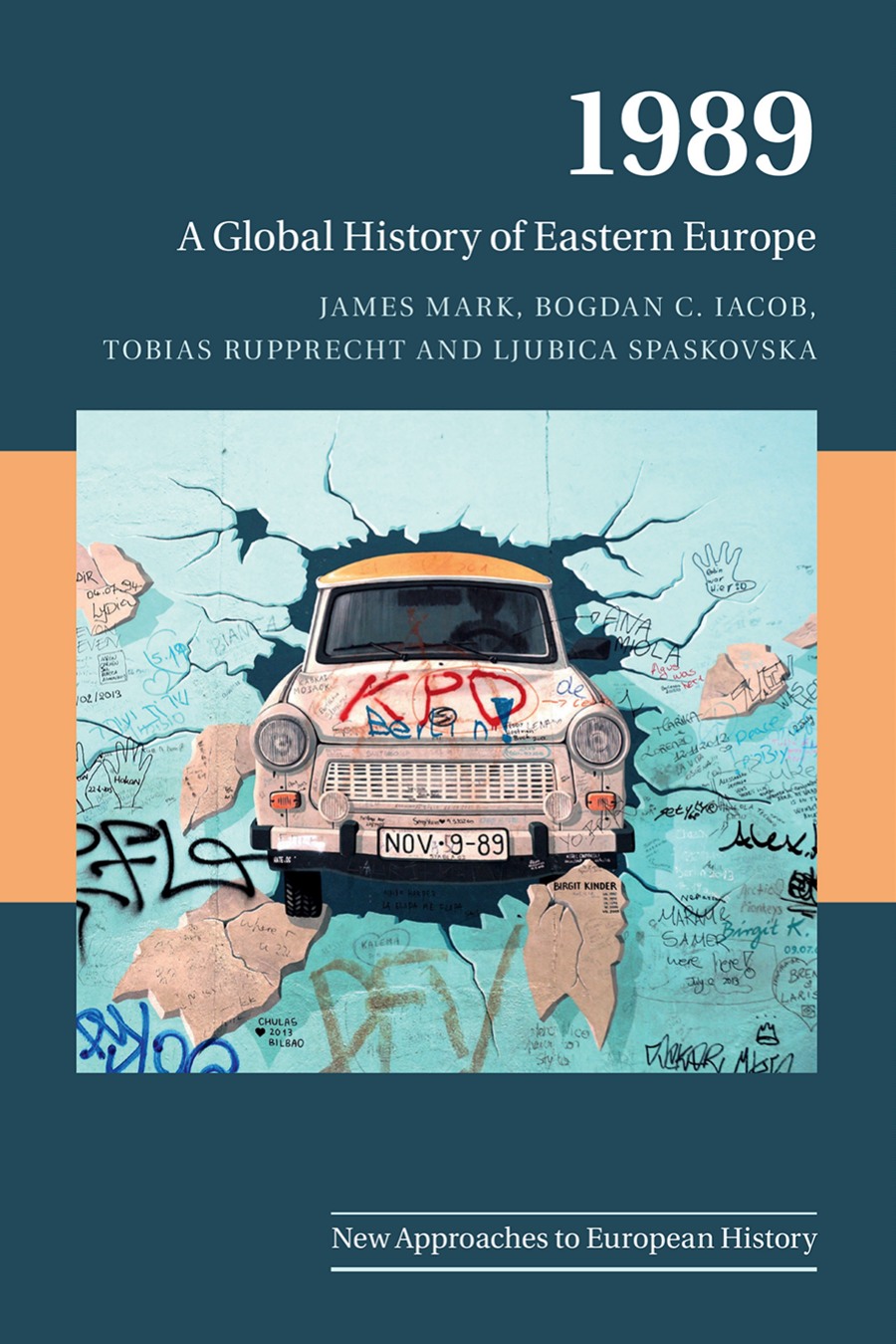James Mark, Bogdan C. Iacob, Tobias Rupprecht, Ljubica Spaskovska: 1989: A Global History of Eastern Europe (2019)
Filed under book | Tags: · 1989, authoritarianism, capitalism, central europe, communism, democracy, eastern europe, europe, european union, globalisation, history, human rights, illiberalism, internationalism, liberalism, market, migration, nationalism, neoliberalism, politics, post-communism, refugees, socialism, southeastern europe, soviet union, transition

“The collapse of the Berlin Wall has come to represent the entry of an isolated region onto the global stage. On the contrary, this study argues that communist states had in fact long been shapers of an interconnecting world, with ‘1989’ instead marking a choice by local elites about the form that globalisation should take. Published to coincide with the thirtieth anniversary of the 1989 revolutions, this work draws on material from local archives to international institutions to explore the place of Eastern Europe in the emergence, since the 1970s, of a new world order that combined neoliberal economics and liberal democracy with increasingly bordered civilisational, racial and religious identities. An original and wide-ranging history, it explores the importance of the region’s links to the West, East Asia, Africa, and Latin America in this global transformation, reclaiming the era’s other visions such as socialist democracy or authoritarian modernisation which had been lost in triumphalist histories of market liberalism.”
Publisher Cambridge University Press, Cambridge, UK, 2019
New Approaches to European History series, 59
ISBN 9781108427005, 1108427006
vii+372 pages
Reviews: Árpád von Klimo (H-Diplo, 2020), Tilmann Siebeneichner (German History, 2020), Nick Ostrum (Europe Now, 2020),
Interviews with co-author (James Mark): Ondřej Bělíček (A2larm, CZ, 2019), Ondřej Bělíček (Jacobin, 2020), Ronaldas Galinis (LRT.lt, 2020), Rūta Miškinytė (15min.lt, 2020, LT), Zoltán Ginelli (LeftEast, 2020, Part 2, Part 3).
Book summary (Eurozine, 2019).
Project website
Publisher
WorldCat
Andrew Barry: Political Machines: Governing a Technological Society (2001)
Filed under book | Tags: · citizenship, european union, governance, intellectual property, interactivity, neoliberalism, networks, politics, society, sociology of science, technology

Technology assumes a remarkable importance in contemporary political life. Today, politicians and intellectuals extol the virtues of networking, interactivity and feedback, and stress the importance of new media and biotechnologies for economic development and political innovation. Measures of intellectual productivity and property play an increasingly critical part in assessments of the competitiveness of firms, universities and nation-states. At the same time, contemporary radical politics has come to raise questions about the political preoccupation with technical progress, while also developing a certain degree of technical sophistication itself.
In a series of in-depth analyses of topics ranging from environmental protest to intellectual property law, and from interactive science centres to the European Union, this book interrogates the politics of the technological society. Critical of the form and intensity of the contemporary preoccupation with new technology, Political Machines opens up a space for thinking the relation between technical innovation and political inventiveness.
Publisher Continuum International Publishing Group, 2001
ISBN 0485006340, 9780485006346
320 pages
PDF (no OCR)
Comment (1)European Digital Rights: EU Surveillance (2012)
Filed under booklet | Tags: · biometrics, data retention, european union, privacy, surveillance

“The purpose of this booklet is to briefly outline current EU surveillance and security measures in order to give an insight into their scale and cumulative effect. In order to be legal under the EU Charter of Fundamental Rights and the European Convention on Human Rights, each security measure that limits fundamental rights is understood to be effective and a “necessary” and “proportionate” breach of the rights which our society considers to be fundamental.”
Written by Joe McNamee, Kirsten Fiedler, Marie Humeau, Daniel Dimov
Publisher European Digital Rights (EDRi), Brussels, 23 January 2012
The EDRi Papers, Edition 02
Creative Commons 3.0 License
20 pages

